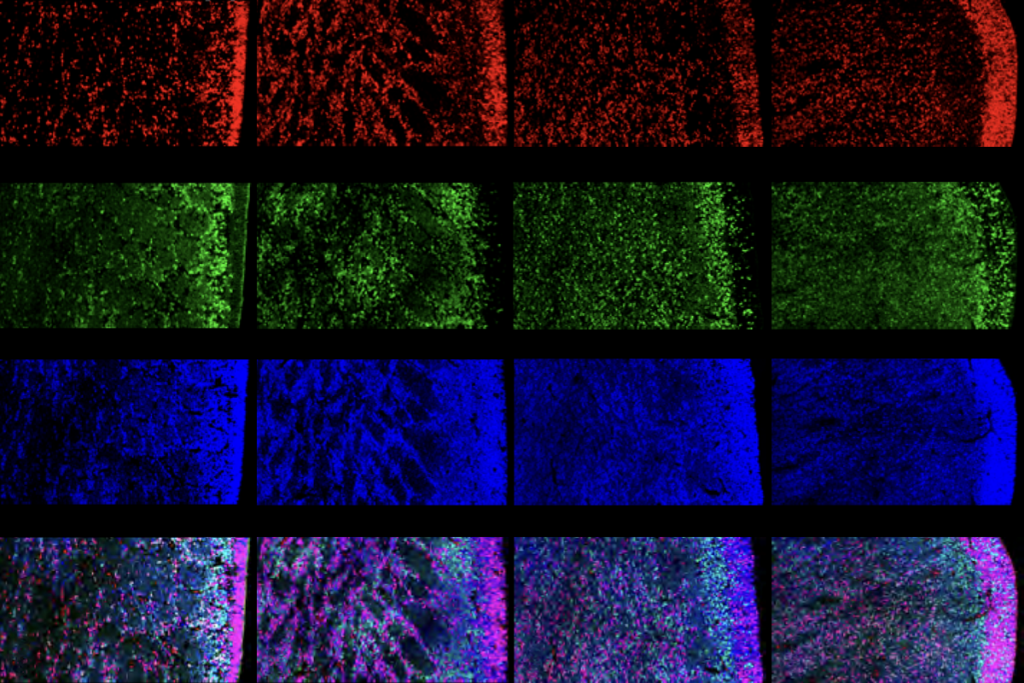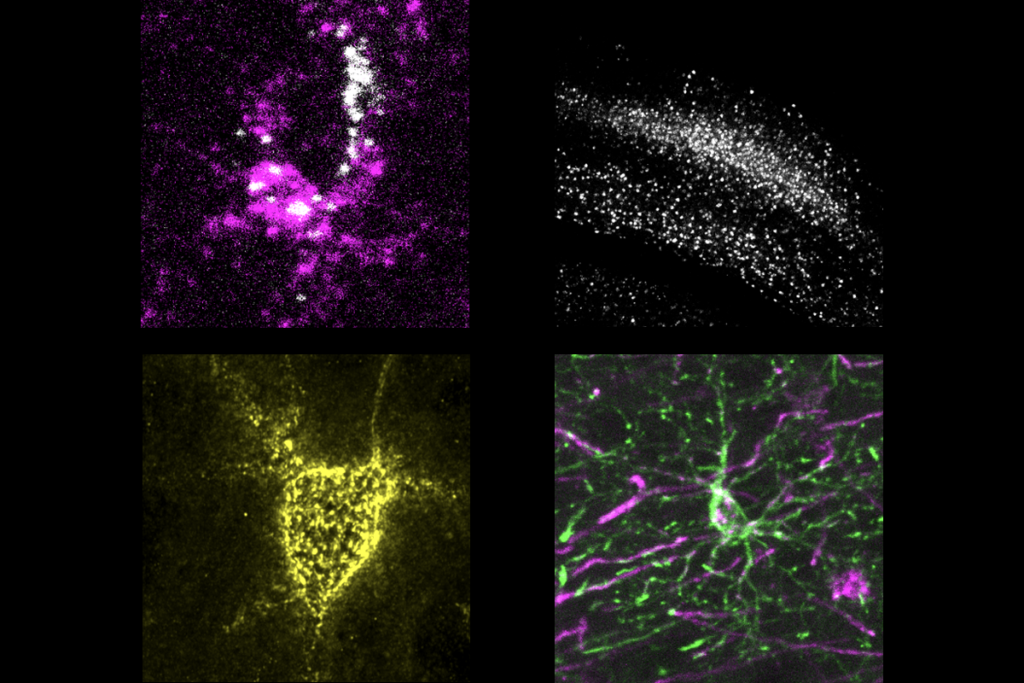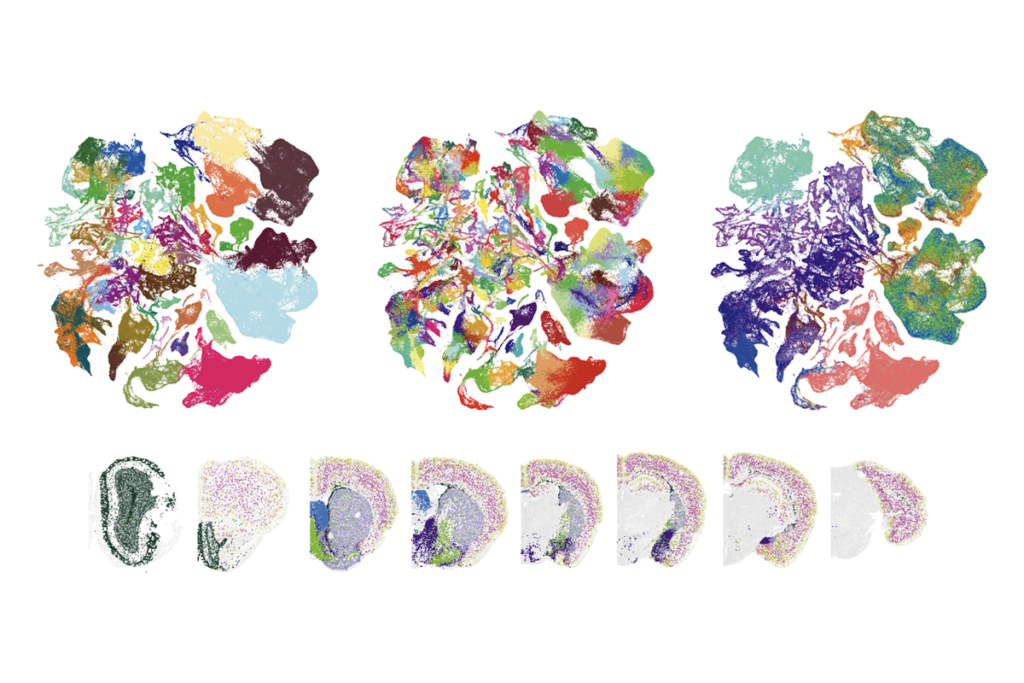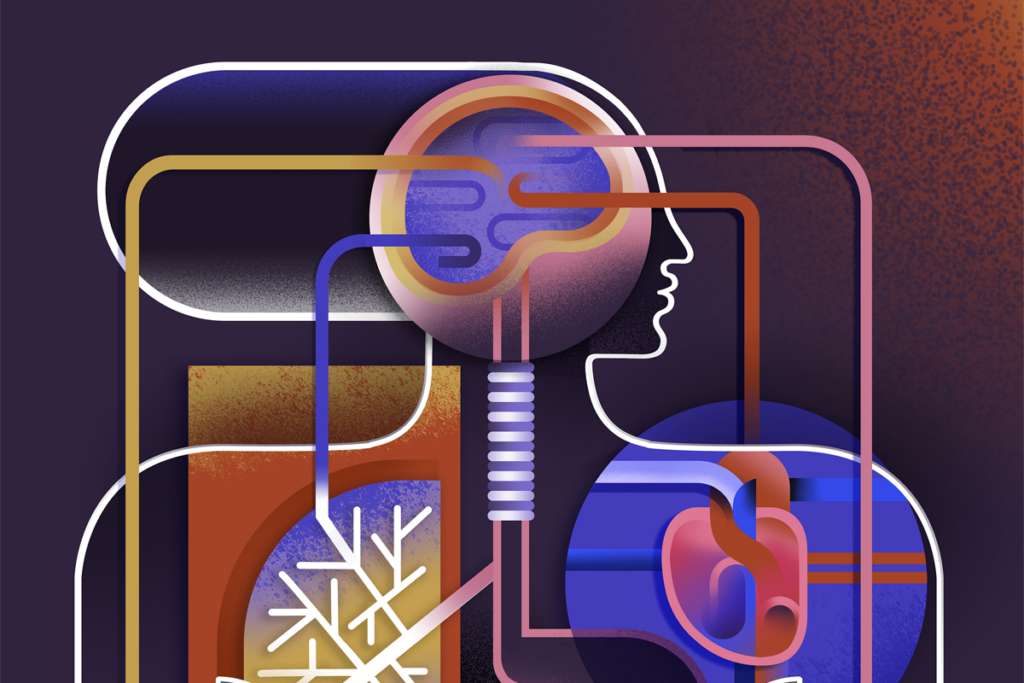Holly Barker is a freelance writer specializing in biology, medicine and psychology. She has a Ph.D. in clinical neuroscience from King’s College London in the United Kingdom and a B.Sc. degree in biochemistry from the University of Manchester. She has previously written for Discover and BioNews. She is based in London.

Holly Barker
Contributing writer
From this contributor
‘Tour de force’ study flags fount of interneurons in human brain
The newly discovered cell type might point to the origins of the inhibitory imbalance linked to autism and other conditions.

‘Tour de force’ study flags fount of interneurons in human brain
Astrocytes stabilize circuits in adult mouse brain
The glial cells secrete a protein that suppresses plasticity post-development.

Astrocytes stabilize circuits in adult mouse brain
Among brain changes studied in autism, spotlight shifts to subcortex
The striatum and thalamus are more likely than the cerebral cortex to express autism variants or bear transcriptional changes, two unpublished studies find.

Among brain changes studied in autism, spotlight shifts to subcortex
Home makeover helps rats better express themselves: Q&A with Raven Hickson and Peter Kind
The “Habitat”—a complex environment with space for large social groups—expands the behavioral repertoire of rodent models, Hickson and Kind say.
Home makeover helps rats better express themselves: Q&A with Raven Hickson and Peter Kind
Constellation of studies charts brain development, offers ‘dramatic revision’
The atlases could pinpoint pathways that determine the fate of cells linked to neurodevelopmental conditions.

Constellation of studies charts brain development, offers ‘dramatic revision’
Explore more from The Transmitter
PIEZO channels are opening the study of mechanosensation in unexpected places
The force-activated ion channels underlie the senses of touch and proprioception. Now scientists are using them as a tool to explore molecular mechanisms at work in internal organs, including the heart, bladder, uterus and kidney.

PIEZO channels are opening the study of mechanosensation in unexpected places
The force-activated ion channels underlie the senses of touch and proprioception. Now scientists are using them as a tool to explore molecular mechanisms at work in internal organs, including the heart, bladder, uterus and kidney.
Latest iteration of U.S. federal autism committee comes under fire
The new panel “represents a radical departure from all past rosters,” says autism researcher Helen Tager-Flusberg.

Latest iteration of U.S. federal autism committee comes under fire
The new panel “represents a radical departure from all past rosters,” says autism researcher Helen Tager-Flusberg.
Michael Shadlen explains how theory of mind ushers nonconscious thoughts into consciousness
All of our thoughts, mostly nonconscious, are interrogations of the world, Shadlen says. The opportunity to report our answers to ourselves or others brings a thought into conscious awareness.
Michael Shadlen explains how theory of mind ushers nonconscious thoughts into consciousness
All of our thoughts, mostly nonconscious, are interrogations of the world, Shadlen says. The opportunity to report our answers to ourselves or others brings a thought into conscious awareness.